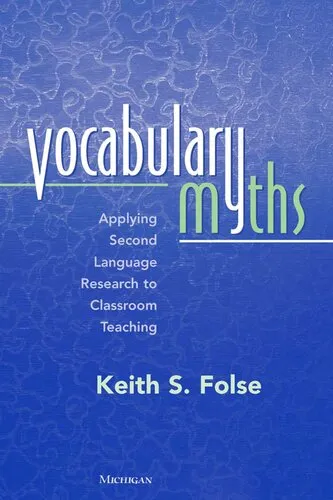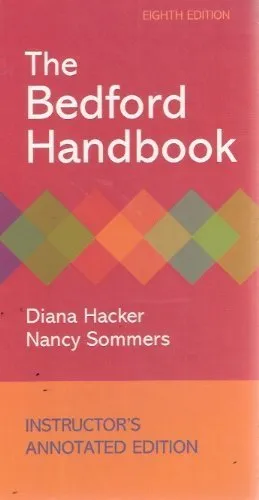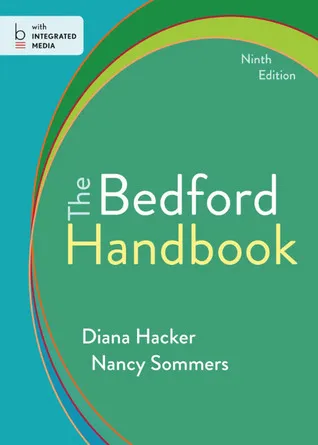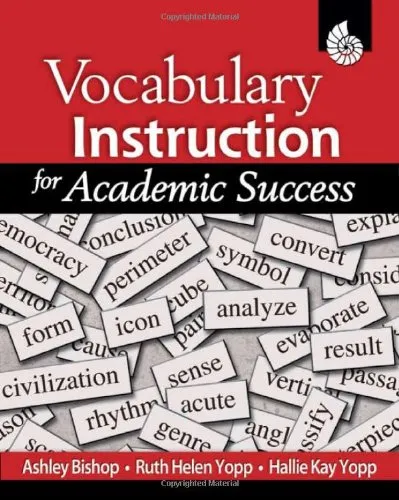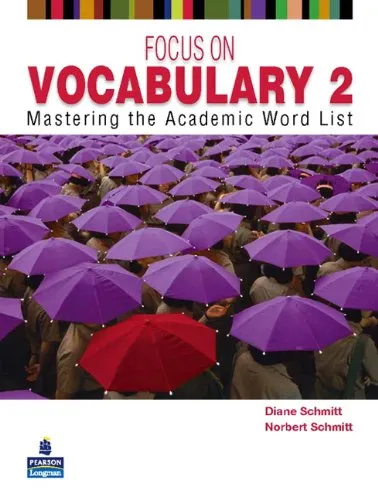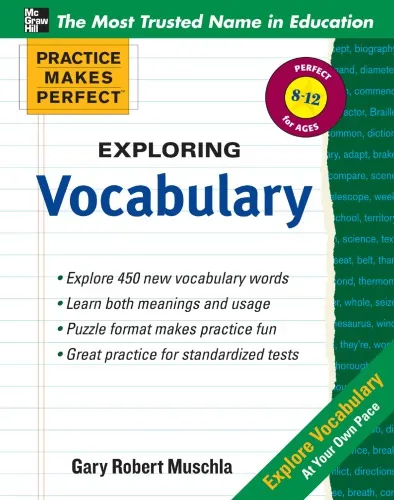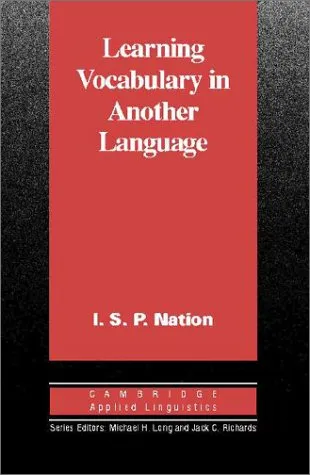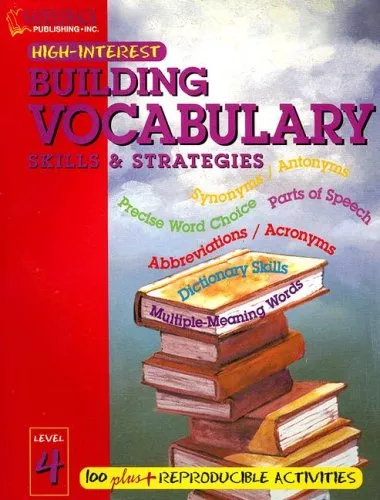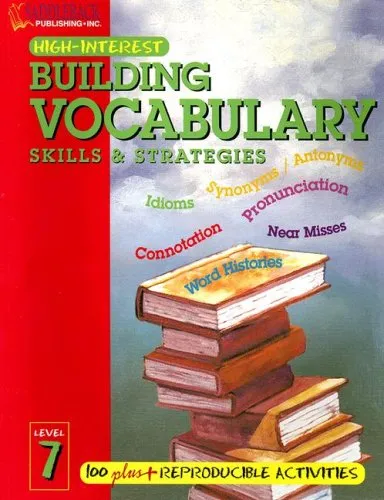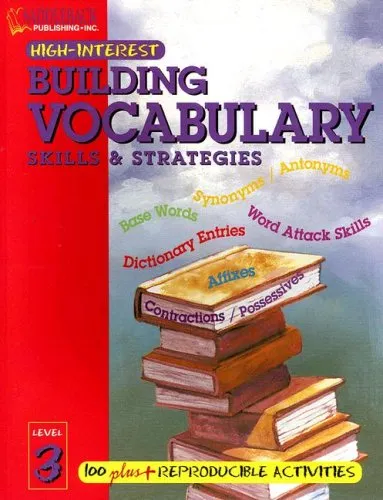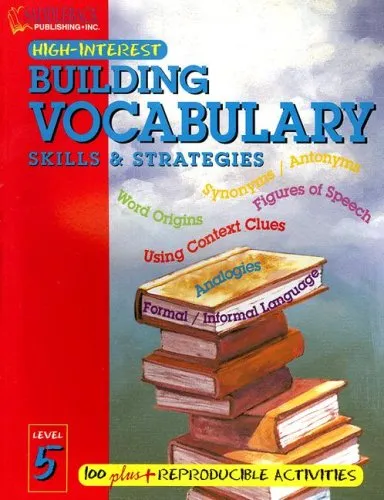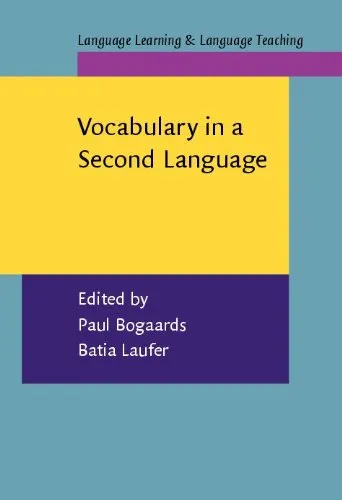Vocabulary Myths: Applying Second Language Research to Classroom Teaching
4.5
Reviews from our users

You Can Ask your questions from this book's AI after Login
Each download or ask from book AI costs 2 points. To earn more free points, please visit the Points Guide Page and complete some valuable actions.Related Refrences:
Introduction to 'Vocabulary Myths: Applying Second Language Research to Classroom Teaching'
Welcome to an insightful exploration into one of the most crucial, yet often misunderstood components of language learning - vocabulary acquisition. 'Vocabulary Myths: Applying Second Language Research to Classroom Teaching' is a compelling book that challenges common misconceptions about vocabulary learning, offering practical insights for educators and language learners alike.
The book delves deep into the world of language teaching, drawing on extensive research and practical experience to debunk myths that have persisted for decades. By addressing these myths head-on, the book provides a fresh perspective and effective strategies for teaching vocabulary that are grounded in evidence-based research.
Detailed Summary of the Book
In 'Vocabulary Myths', I address ten prevalent myths surrounding vocabulary acquisition in second language learning. Each myth is examined in detail, with a focus on presenting research-based evidence that supports or contradicts these commonly held beliefs.
For example, one of the myths discussed is the belief that vocabulary should not be explicitly taught, as learners can naturally acquire it through exposure. I explore the pitfalls of this assumption, showcasing studies that highlight the importance of direct vocabulary instruction.
Another myth I explore is the idea that vocabulary learning can occur effectively in isolation. Through various studies and classroom scenarios, I demonstrate how context and usage are essential for long-term retention.
The book is structured to provide not just research findings, but also practical applications. Each chapter includes suggestions and strategies that teachers can implement in their classrooms to more effectively teach vocabulary, tailored to meet diverse learning needs.
Key Takeaways
- Misconceptions in vocabulary teaching can hinder effective learning; it is crucial to challenge these myths with research-backed evidence.
- Direct vocabulary instruction is vital and can lead to significant improvements in language proficiency.
- Contextual learning and the integration of vocabulary in meaningful settings enhance retention and understanding.
- A multifaceted approach, combining explicit teaching with exposure and usage, provides the best results for vocabulary acquisition.
Famous Quotes from the Book
"Vocabulary is not simply a side element in language learning; it is as central to communication as grammar and pronunciation."
"Dispelling myths is the first step towards better vocabulary instruction and ultimately, more effective language learning."
Why This Book Matters
'Vocabulary Myths' stands out in the field of language teaching literature due to its focus on dispelling widely accepted myths and replacing them with insights from scientific research. The book is an invaluable resource for language educators who seek to improve their instructional methods and for learners who aim to enhance their proficiency.
By addressing these misconceptions, I aim to bridge the gap between research and practice, empowering educators with the knowledge they need to foster successful language acquisition. In today's globalized world, mastering vocabulary is more critical than ever, and this book provides the tools and understanding necessary to achieve that mastery.
The insights provided are not only applicable to English language teaching but also extend to other languages, making it a versatile guide for educators worldwide.
In conclusion, 'Vocabulary Myths' encourages educators to critically evaluate their teaching practices, embrace evidence-based instruction, and ultimately transform their approach to vocabulary teaching. By doing so, it contributes significantly to the advancement of second language education.
Free Direct Download
You Can Download this book after Login
Accessing books through legal platforms and public libraries not only supports the rights of authors and publishers but also contributes to the sustainability of reading culture. Before downloading, please take a moment to consider these options.
Find this book on other platforms:
WorldCat helps you find books in libraries worldwide.
See ratings, reviews, and discussions on Goodreads.
Find and buy rare or used books on AbeBooks.
1421
بازدید4.5
امتیاز0
نظر98%
رضایتReviews:
4.5
Based on 0 users review
Questions & Answers
Ask questions about this book or help others by answering
No questions yet. Be the first to ask!
